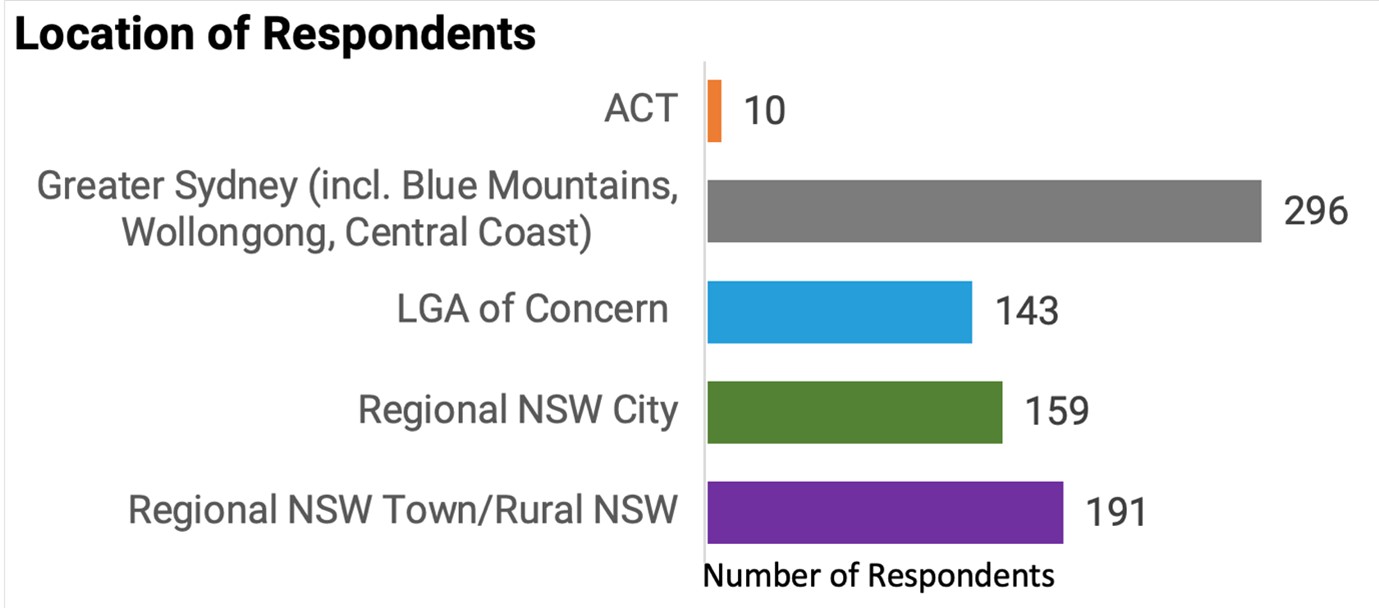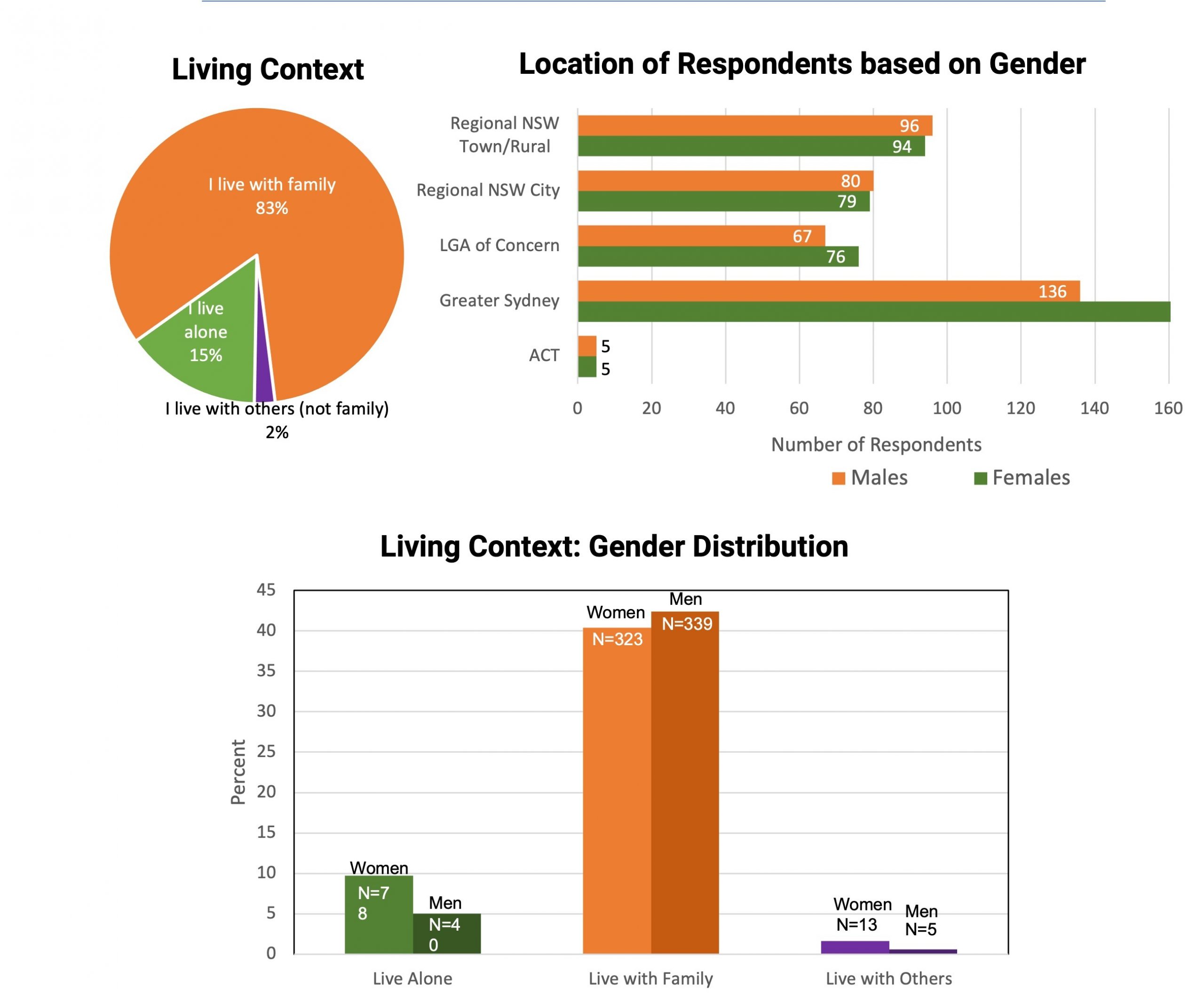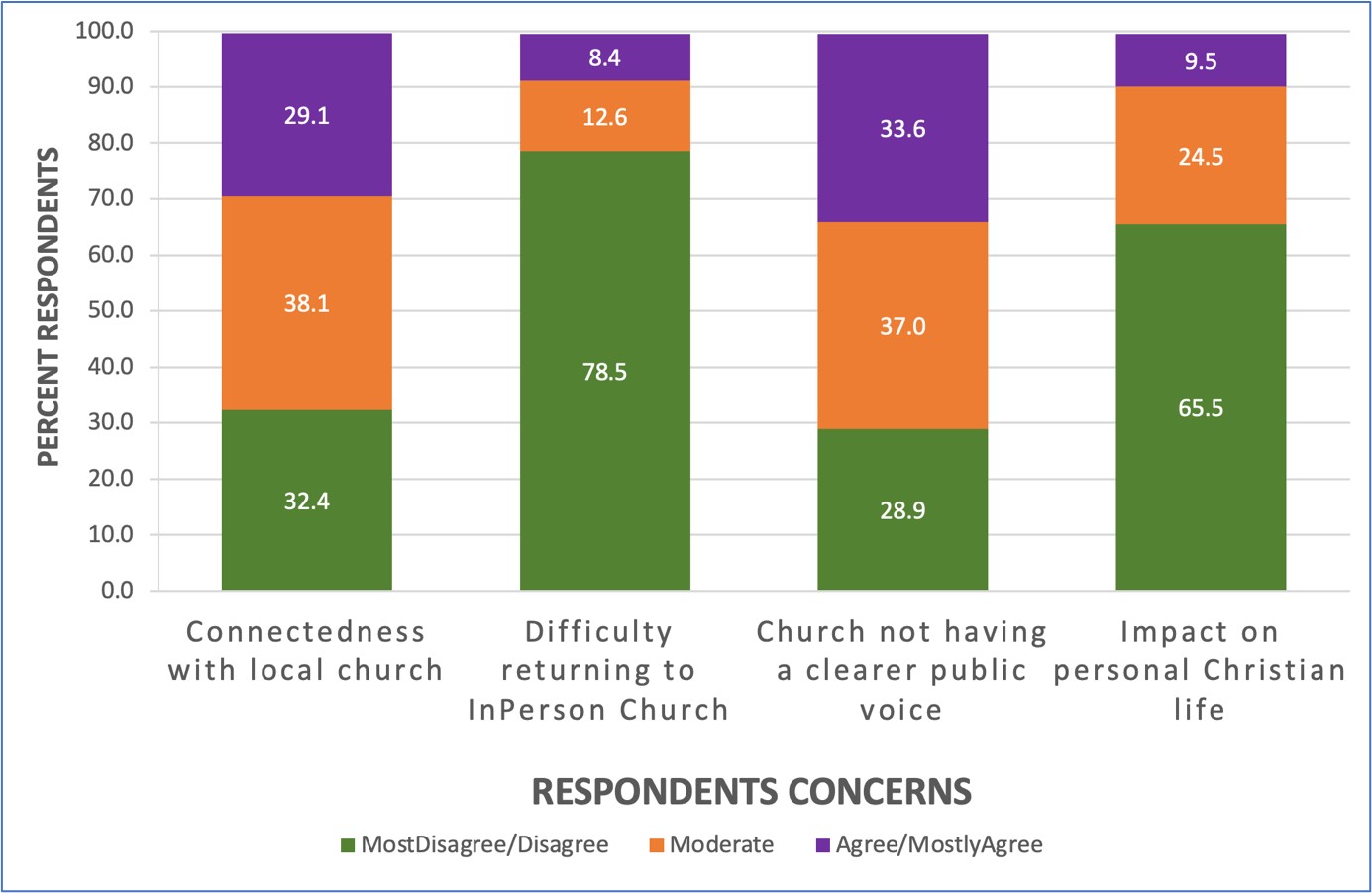
OVERVIEW
In August 2021, we distributed a survey* to determine the impact of the pandemic on people in the Presbyterian Church in NSW & ACT. We are grateful to those who completed the survey. Within a week, we received more than 800 responses.
Below is a summary of the first 800 responses received; 792 of these respondents attended a Presbyterian Church. The number of responses from people with different roles in the Church are listed below:




SURVEY PART 1: CHRISTIAN CONNECTEDNESS
The survey sought information on several aspects of people’s current experience during the pandemic. In part 1 of the survey, we provide a summary of the results related to Christian Connectedness for the entire group of respondents. We will follow-up at a later update with an analysis of Christian connectedness specifically for people in different roles in the church, for different regions, and by genders and age. The two areas that people were most concerned about with respect to these domains were:
- their connectedness with the local church: 51.5% of people indicated that connectedness to the local church was a concern. However almost 85% of people indicated that they did not have a concern with returning to face-to-face worship.
- the church not having a clearer voice: 50.4% of people indicated that the church not having a clearer public voice was a concern for them.
An area of encouragement was that most people (78.6%) disagreed that the pandemic was having a negative impact on their personal Christian life.

The area of the bars in green indicates the proportion of people who did not share a concern in each domain. The area in orange indicates the proportion of people who moderately agreed or disagreed. The area in purple indicates the proportion of people for whom this domain was a concern.
You are still able to complete the survey using this link. We will update the data as appropriate.
Top Photo: Anna Shvets from Pexels
*Limitation of the Survey
Surveys are a reliable and efficient means of measuring sentiment, challenging/validating assumptions, obtaining opinion and monitoring change over time. They are frequently used to inform local debates and decisions, and to measure impact and support of policies and initiatives. They can also provide evidence to determine appropriate initiatives.
However, as with all methods of data collection, surveys have limitations. We have summarised a few key limitations here but are also aware that there may be others.
Firstly, while we can quantify the perceptions of respondents, interpretation of the results is both complex and challenging without the opportunity to follow up with discussion. We need to be reminded that this data is a measure of perceptions of people only and are relevant to a particular time.
Secondly, the survey was distributed via email and social media. We accept that this distribution methods limit access to the survey.
Thirdly, we accept that the questions may be phrased in ways that were challenging for some people.
Fourthly, we are mindful not to introduce our biases in reporting the data to you. Hence, we provide in these reports a summary of the data without interpretations of what it could possibly mean. We will discuss our interpretations in upcoming blogs, papers and seminars.
